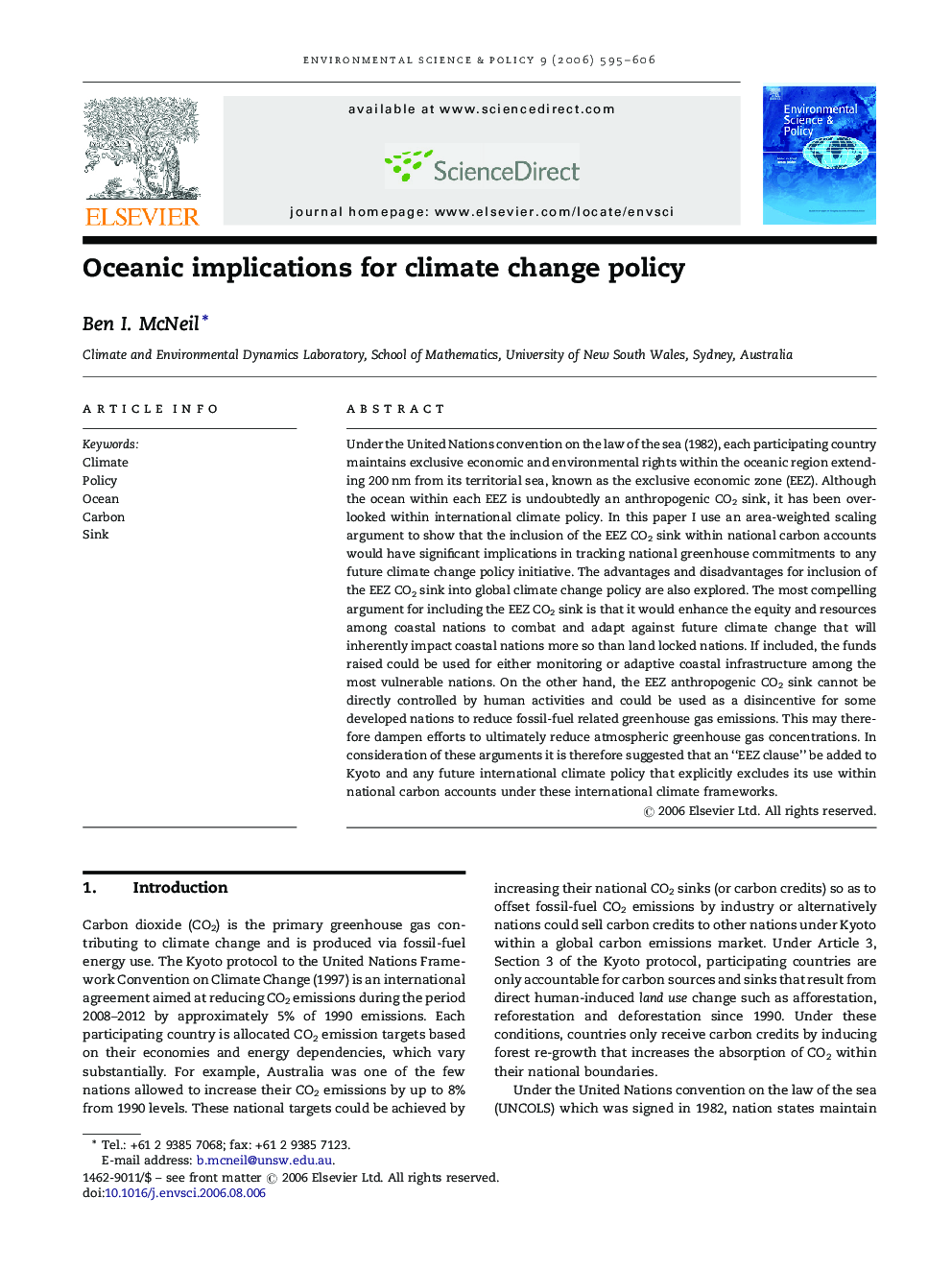| Article ID | Journal | Published Year | Pages | File Type |
|---|---|---|---|---|
| 1054324 | Environmental Science & Policy | 2006 | 12 Pages |
Abstract
Under the United Nations convention on the law of the sea (1982), each participating country maintains exclusive economic and environmental rights within the oceanic region extending 200Â nm from its territorial sea, known as the exclusive economic zone (EEZ). Although the ocean within each EEZ is undoubtedly an anthropogenic CO2 sink, it has been over-looked within international climate policy. In this paper I use an area-weighted scaling argument to show that the inclusion of the EEZ CO2 sink within national carbon accounts would have significant implications in tracking national greenhouse commitments to any future climate change policy initiative. The advantages and disadvantages for inclusion of the EEZ CO2 sink into global climate change policy are also explored. The most compelling argument for including the EEZ CO2 sink is that it would enhance the equity and resources among coastal nations to combat and adapt against future climate change that will inherently impact coastal nations more so than land locked nations. If included, the funds raised could be used for either monitoring or adaptive coastal infrastructure among the most vulnerable nations. On the other hand, the EEZ anthropogenic CO2 sink cannot be directly controlled by human activities and could be used as a disincentive for some developed nations to reduce fossil-fuel related greenhouse gas emissions. This may therefore dampen efforts to ultimately reduce atmospheric greenhouse gas concentrations. In consideration of these arguments it is therefore suggested that an “EEZ clause” be added to Kyoto and any future international climate policy that explicitly excludes its use within national carbon accounts under these international climate frameworks.
Related Topics
Physical Sciences and Engineering
Energy
Renewable Energy, Sustainability and the Environment
Authors
Ben I. McNeil,
